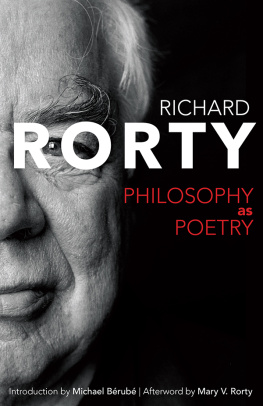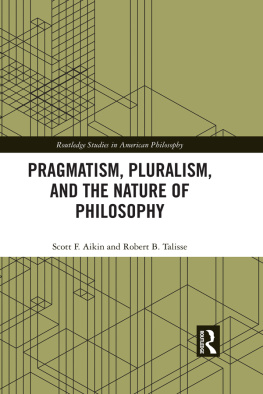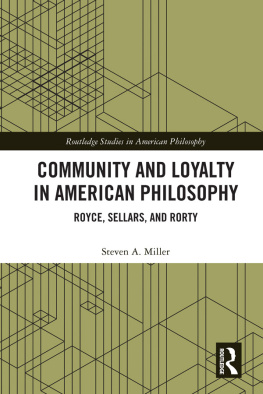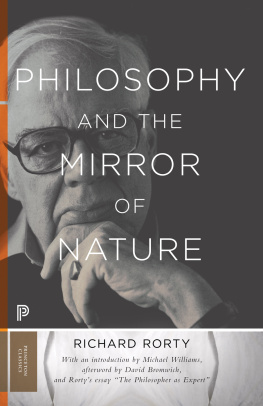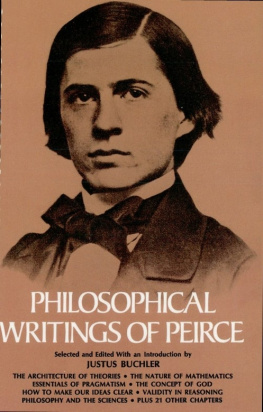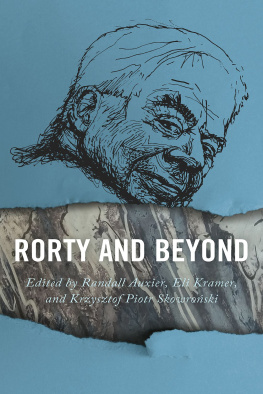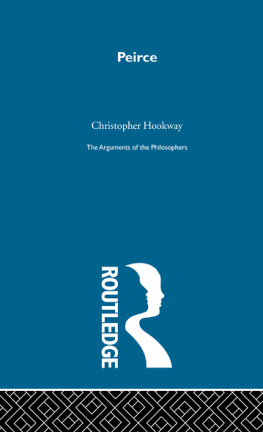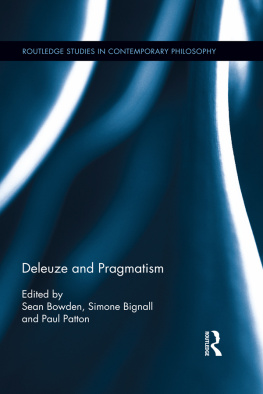Cover
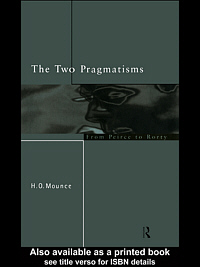
| title | : | The Two Pragmatisms : From Peirce to Rorty |
| author | : | Mounce, H. O. |
| publisher | : | Taylor & Francis Routledge |
| isbn10 | asin | : |
| print isbn13 | : | 9780203045213 |
| ebook isbn13 | : | 9780203277805 |
| language | : | English |
| subject | Pragmatism--History, Pragmatism, Peirce, Charles S.--(Charles Sanders),--1839-1914, Rorty, Richard. |
| publication date | : | 2002 |
| lcc | : | B832.M686 2002eb |
| ddc | : | 144/.3 |
| subject | : | Pragmatism--History, Pragmatism, Peirce, Charles S.--(Charles Sanders),--1839-1914, Rorty, Richard. |
Page i
The Two Pragmatisms
The Pragmatist tradition in philosophy has, through the work of Richard Rorty, recently achieved a status until now has not been accorded to its founder, Charles Sanders Peirce. Much of Peirces work and his life has remained hidden and little explored, status instead lying with William James, who is known to have misinterpreted Peirces work.
The Two Pragmatisms: From Peirce to Rorty maps out the changing status and key ideas of the Pragmatist movement explaining the diverging paths of the Two Pragmatisms from Peirces pioneering work on the theory of signs, to Rortys seminal writings on the mirror of nature. The Realism of Peirce is contrasted with the anti-Realism that characterises much of the contemporary writing on Pragmatism. The work of Rorty in particular is used to explain the importance of Pragmatism today, in particular through his debt to Dewey, whom he has described as one of the three most important philosophers of the century.
The Two Pragmatisms: From Peirce to Rorty is a clear account of a philosophical movement that cannot be ignored, and should be read by anyone with an interest in contemporary philosophy.
H. O. Mounce lectures in philosophy at the University of Wales, Swansea. He is the author of Wittgensteins Tractatus: An Introduction.
Page ii
This page intentionally left blank.
Page iii
The Two Pragmatisms
From Peirce to Rorty
H. O. Mounce

London and New York
Page iv
First published 1997
by Routledge
11 New Fetter Lane, London EC4P 4EE
This edition published in the Taylor & Francis e-Library, 2002.
Simultaneously published in the USA and Canada
by Routledge
29 West 35th Street, New York, NY 10001
1997 H. O. Mounce
All rights reserved. No part of this book may be reprinted or reproduced or utilised in any form or by any electronic, mechanical, or other means, now known or hereafter invented, including photocopying and recording, or in any information storage or retrieval system, without permission in writing from the publishers.
British Library Cataloguing in Publication Data
A catalogue record for this book is available from the British Library
Library of Congress Cataloguing in Publication Data
Mounce, H. O.
The two pragmatisms: from Peirce to Rorty / H. O. Mounce.
Includes bibliographical references and index.
1. Pragmatism History. 2. Pragmatism. 3. Peirce, Charles S. (Charles Sanders), 18391914. 4. Rorty, Richard. I. Title. B832.M686 1996 144.3dc209621878
CIP
ISBN 0-203-04521-1 Master e-book ISBN
ISBN 0-203-27780-5 (OEB Format)
ISBN 0415152828 (hbk)
ISBN 0415152836 (pbk)
Page v
To the memory of Gwyneth and Joseph Mounce
Page vi
This page intentionally left blank.
Page vii
Contents
Peirce: his background and his account of inquiry | |
Inquiry and the critique of Cartesianism | |
Peirce: the theory of signs | |
Peirce: Pragmatism and William James | |
Peirce: metaphysics and cosmology | |
James: background andThe Principles of Psychology | |
The Principles of Psychology | |
James: The Will to Believe | |
James:The Varieties of Religious Experience | |
Dewey: background and philosophical psychology | |
The philosophy of education | |
Dewey: philosophy and Empiricism | |
Page viii
Dewey: Radical Empiricism | |
Rorty: the mirror of nature | |
Rorty: hermeneutics and irony | |
Rorty: the history of philosophy | |
Page ix
Acknowledgements
I should like to express my gratitude to Ian Tipton and Helen Baldwin, the former for the care with which he read this work in manuscript, the latter for the skill with which she prepared it for publication. My greatest debt is to my wife who was a continual source of strength during the time when the work was written.
Next page

